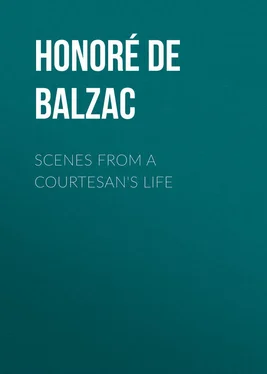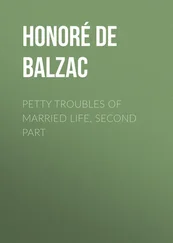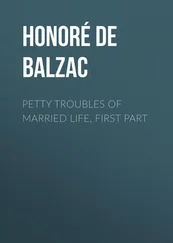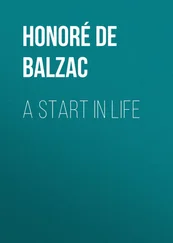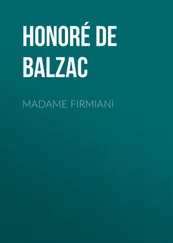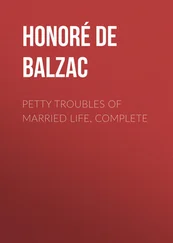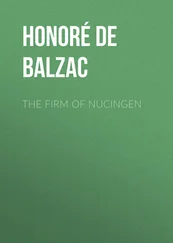Honoré Balzac - Scenes from a Courtesan's Life
Здесь есть возможность читать онлайн «Honoré Balzac - Scenes from a Courtesan's Life» — ознакомительный отрывок электронной книги совершенно бесплатно, а после прочтения отрывка купить полную версию. В некоторых случаях можно слушать аудио, скачать через торрент в формате fb2 и присутствует краткое содержание. Издательство: Иностранный паблик, Жанр: literature_19, foreign_antique, foreign_prose, на английском языке. Описание произведения, (предисловие) а так же отзывы посетителей доступны на портале библиотеки ЛибКат.
- Название:Scenes from a Courtesan's Life
- Автор:
- Издательство:Иностранный паблик
- Жанр:
- Год:неизвестен
- ISBN:нет данных
- Рейтинг книги:4 / 5. Голосов: 1
-
Избранное:Добавить в избранное
- Отзывы:
-
Ваша оценка:
- 80
- 1
- 2
- 3
- 4
- 5
Scenes from a Courtesan's Life: краткое содержание, описание и аннотация
Предлагаем к чтению аннотацию, описание, краткое содержание или предисловие (зависит от того, что написал сам автор книги «Scenes from a Courtesan's Life»). Если вы не нашли необходимую информацию о книге — напишите в комментариях, мы постараемся отыскать её.
Scenes from a Courtesan's Life — читать онлайн ознакомительный отрывок
Ниже представлен текст книги, разбитый по страницам. Система сохранения места последней прочитанной страницы, позволяет с удобством читать онлайн бесплатно книгу «Scenes from a Courtesan's Life», без необходимости каждый раз заново искать на чём Вы остановились. Поставьте закладку, и сможете в любой момент перейти на страницу, на которой закончили чтение.
Интервал:
Закладка:
Delphine de Nucingen gave a grand dinner every Sunday. She had chosen that day for her receptions, after observing that no people of fashion went to the play, and that the day was pretty generally an open one. The emancipation of the shopkeeping and middle classes makes Sunday almost as tiresome in Paris as it is deadly in London. So the Baroness invited the famous Desplein to dinner, to consult him in spite of the sick man, for Nucingen persisted in asserting that he was perfectly well.
Keller, Rastignac, de Marsay, du Tillet, all their friends had made the Baroness understand that a man like Nucingen could not be allowed to die without any notice being taken of it; his enormous business transactions demanded some care; it was absolutely necessary to know where he stood. These gentlemen also were asked to dinner, and the Comte de Gondreville, Francois Keller’s father-in-law, the Chevalier d’Espard, des Lupeaulx, Doctor Bianchon – Desplein’s best beloved pupil – Beaudenord and his wife, the Comte and Comtesse de Montcornet, Blondet, Mademoiselle des Touches and Conti, and finally, Lucien de Rubempre, for whom Rastignac had for the last five years manifested the warmest regard – by order, as the advertisements have it.
“We shall not find it easy to get rid of that young fellow,” said Blondet to Rastignac, when he saw Lucien come in handsomer than ever, and uncommonly well dressed.
“It is wiser to make friends with him, for he is formidable,” said Rastignac.
“He?” said de Marsay. “No one is formidable to my knowledge but men whose position is assured, and his is unattacked rather than attackable! Look here, what does he live on? Where does his money come from? He has, I am certain, sixty thousand francs in debts.”
“He has found a friend in a very rich Spanish priest who has taken a fancy to him,” replied Rastignac.
“He is going to be married to the eldest Mademoiselle de Grandlieu,” said Mademoiselle des Touches.
“Yes,” said the Chevalier d’Espard, “but they require him to buy an estate worth thirty thousand francs a year as security for the fortune he is to settle on the young lady, and for that he needs a million francs, which are not to be found in any Spaniard’s shoes.”
“That is dear, for Clotilde is very ugly,” said the Baroness.
Madame de Nucingen affected to call Mademoiselle de Grandlieu by her Christian name, as though she, nee Goriot, frequented that society.
“No,” replied du Tillet, “the daughter of a duchess is never ugly to the like of us, especially when she brings with her the title of Marquis and a diplomatic appointment. But the great obstacle to the marriage is Madame de Serizy’s insane passion for Lucien. She must give him a great deal of money.”
“Then I am not surprised at seeing Lucien so serious; for Madame de Serizy will certainly not give him a million francs to help him to marry Mademoiselle de Grandlieu. He probably sees no way out of the scrape,” said de Marsay.
“But Mademoiselle de Grandlieu worships him,” said the Comtesse de Montcornet; “and with the young person’s assistance, he may perhaps make better terms.”
“And what will he do with his sister and brother-in-law at Angouleme?” asked the Chevalier d’Espard.
“Well, his sister is rich,” replied Rastignac, “and he now speaks of her as Madame Sechard de Marsac.”
“Whatever difficulties there may be, he is a very good-looking fellow,” said Bianchon, rising to greet Lucien.
“How ‘do, my dear fellow?” said Rastignac, shaking hands warmly with Lucien.
De Marsay bowed coldly after Lucien had first bowed to him.
Before dinner Desplein and Bianchon, who studied the Baron while amusing him, convinced themselves that this malady was entirely nervous; but neither could guess the cause, so impossible did it seem that the great politician of the money market could be in love. When Bianchon, seeing nothing but love to account for the banker’s condition, hinted as much to Delphine de Nucingen, she smiled as a woman who has long known all her husband’s weaknesses. After dinner, however, when they all adjourned to the garden, the more intimate of the party gathered round the banker, eager to clear up this extraordinary case when they heard Bianchon pronounce that Nucingen must be in love.
“Do you know, Baron,” said de Marsay, “that you have grown very thin? You are suspected of violating the laws of financial Nature.”
“Ach, nefer!” said the Baron.
“Yes, yes,” replied de Marsay. “They dare to say that you are in love.”
“Dat is true,” replied Nucingen piteously; “I am in lof for somebody I do not know.”
“You, in love, you? You are a coxcomb!” said the Chevalier d’Espard.
“In lof, at my aje! I know dat is too ridiculous. But vat can I help it! Dat is so.”
“A woman of the world?” asked Lucien.
“Nay,” said de Marsay. “The Baron would not grow so thin but for a hopeless love, and he has money enough to buy all the women who will or can sell themselves!”
“I do not know who she it,” said the Baron. “And as Motame de Nucingen is inside de trawing-room, I may say so, dat till now I have nefer known what it is to lof. Lof! I tink it is to grow tin.”
“And where did you meet this innocent daisy?” asked Rastignac.
“In a carriage, at mitnight, in de forest of Fincennes.”
“Describe her,” said de Marsay.
“A vhite gaze hat, a rose gown, a vhite scharf, a vhite feil – a face just out of de Biple. Eyes like Feuer, an Eastern color – ”
“You were dreaming,” said Lucien, with a smile.
“Dat is true; I vas shleeping like a pig – a pig mit his shkin full,” he added, “for I vas on my vay home from tinner at mine friend’s – ”
“Was she alone?” said du Tillet, interrupting him.
“Ja,” said the Baron dolefully; “but she had ein heiduque behind dat carriage and a maid-shervant – ”
“Lucien looks as if he knew her,” exclaimed Rastignac, seeing Esther’s lover smile.
“Who doesn’t know the woman who would go out at midnight to meet Nucingen?” said Lucien, turning on his heel.
“Well, she is not a woman who is seen in society, or the Baron would have recognized the man,” said the Chevalier d’Espard.
“I have nefer seen him,” replied the Baron. “And for forty days now I have had her seeked for by de Police, and dey do not find her.”
“It is better that she should cost you a few hundred francs than cost you your life,” said Desplein; “and, at your age, a passion without hope is dangerous, you might die of it.”
“Ja, ja,” replied the Baron, addressing Desplein. “And vat I eat does me no goot, de air I breade feels to choke me. I go to de forest of Fincennes to see de place vat I see her – and dat is all my life. I could not tink of de last loan – I trust to my partners vat haf pity on me. I could pay one million franc to see dat voman – and I should gain by dat, for I do nothing on de Bourse. – Ask du Tillet.”
“Very true,” replied du Tillet; “he hates business; he is quite unlike himself; it is a sign of death.”
“A sign of lof,” replied Nucingen; “and for me, dat is all de same ting.”
The simple candor of the old man, no longer the stock-jobber, who, for the first time in his life, saw that something was more sacred and more precious than gold, really moved these world-hardened men; some exchanged smiles; other looked at Nucingen with an expression that plainly said, “Such a man to have come to this!” – And then they all returned to the drawing-room, talking over the event.
For it was indeed an event calculated to produce the greatest sensation. Madame de Nucingen went into fits of laughter when Lucien betrayed her husband’s secret; but the Baron, when he heard his wife’s sarcasms, took her by the arm and led her into the recess of a window.
Читать дальшеИнтервал:
Закладка:
Похожие книги на «Scenes from a Courtesan's Life»
Представляем Вашему вниманию похожие книги на «Scenes from a Courtesan's Life» списком для выбора. Мы отобрали схожую по названию и смыслу литературу в надежде предоставить читателям больше вариантов отыскать новые, интересные, ещё непрочитанные произведения.
Обсуждение, отзывы о книге «Scenes from a Courtesan's Life» и просто собственные мнения читателей. Оставьте ваши комментарии, напишите, что Вы думаете о произведении, его смысле или главных героях. Укажите что конкретно понравилось, а что нет, и почему Вы так считаете.
